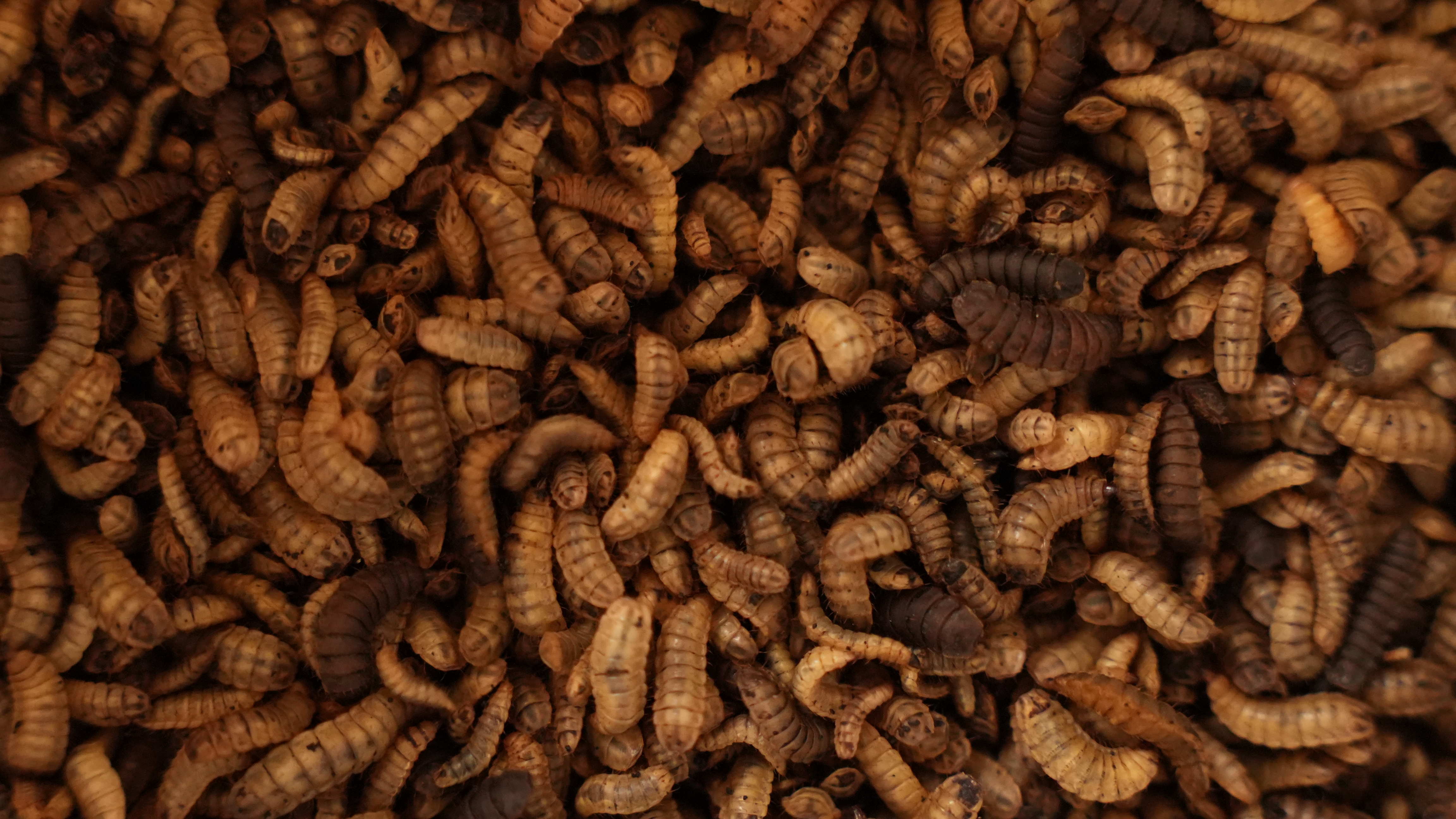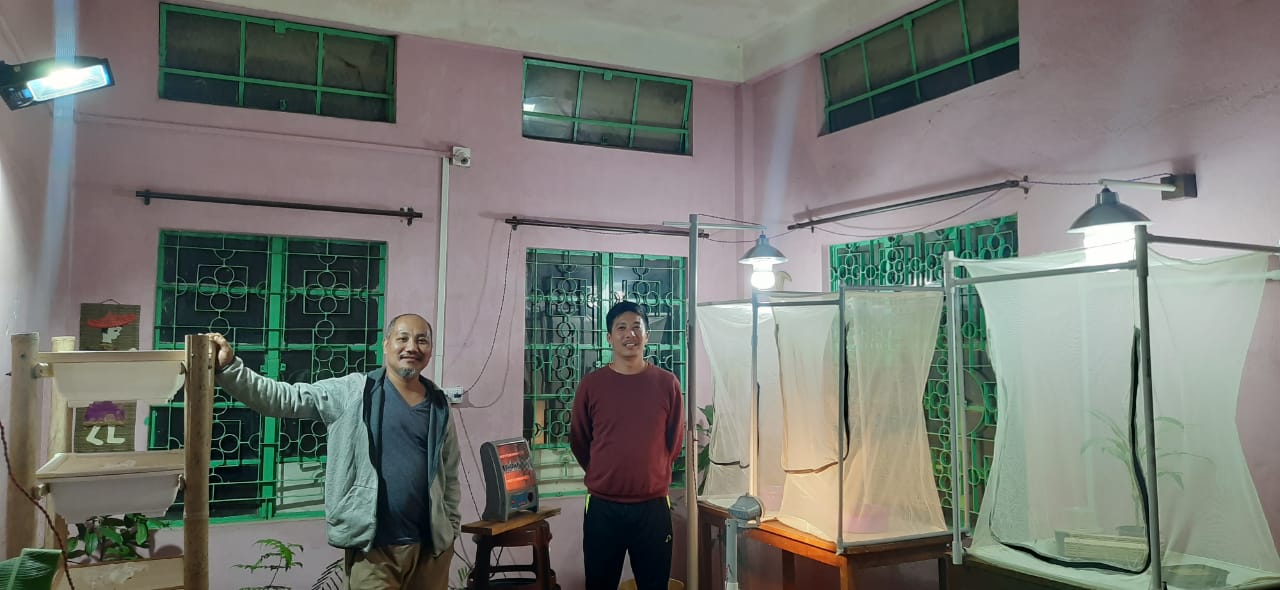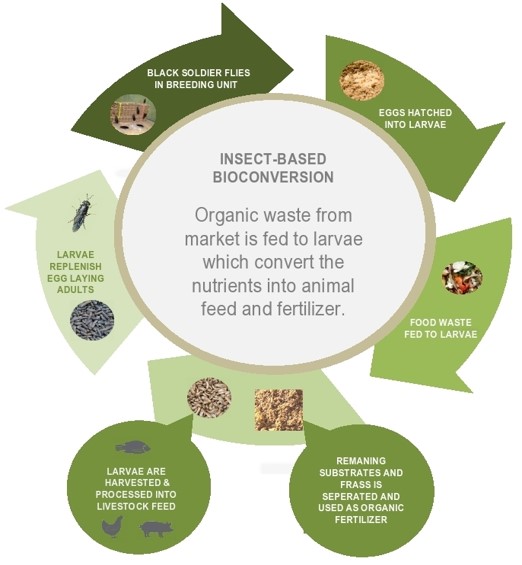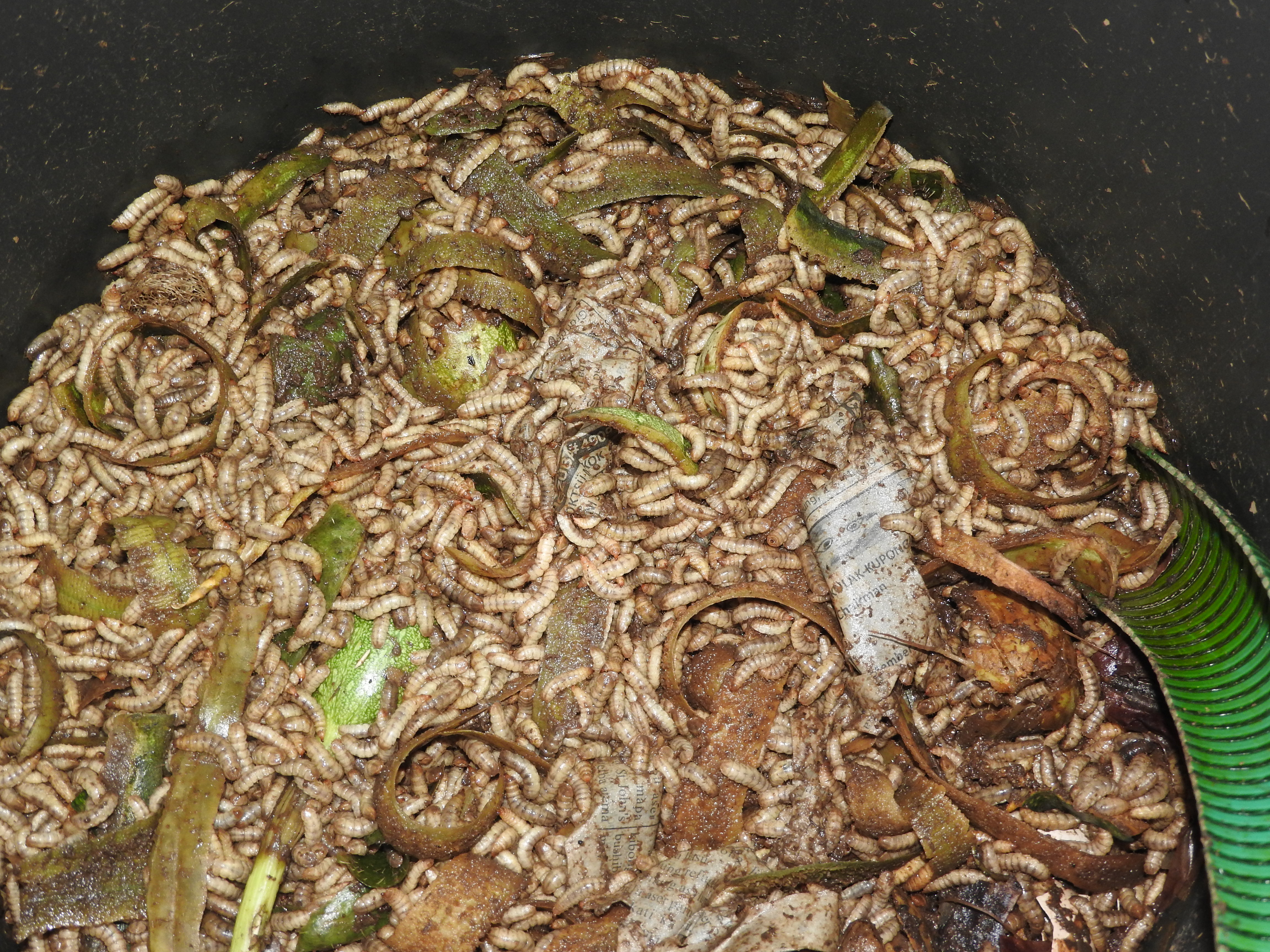Hail the Black Soldier Fly: turning waste to animal feed
June 2, 2023

Flies are typically swatted away. We don’t want them anywhere near our food or in the house for that matter. Nagaland residents Jongpong Chiten and Dr. Akumtoshi Lk seek them out and nurture them. Not all types of flies. Only one kind that can decompose household solid waste to protein, manure – the Black Soldier Fly. More than 40% of the waste that is generated by households is organic in nature, which if left untreated, rots and decomposes producing methane, a greenhouse gas 23 times more potent than carbon dioxide. Solid waste from home kitchens often finds its way to local garbage dumps or landfills, where it is left to rot.
The problem gets worse in emerging cities like Dimapur, in Nagaland, where organized waste collection and management cannot keep pace with the growing waste. About 115 MT of garbage is collected daily in Dimapur, of which a big chunk is organic in nature. The recycling mechanism available locally is limited.

“A lot of household waste in Dimapur is organic. We needed to find an environmentally safe method of processing it rather than leaving it to rot in landfills. The Black Soldier Fly does just that,” says Chiten, one of the founders of ‘Waste to Protein Facility’ – a venture that seeks to decompose organic waste to manure and animal feed.
Treating organic waste using the larvae of the black soldier fly is an environmentally safe and cost-efficient method and is being increasingly used worldwide. The larvae of the black soldier fly feed voraciously on various types of organic matter, including food waste, and reduces the weight of the waste by about 50% and at a faster rate than conventional composting methods.
“We started by collecting black soldier flies (BSF) from the wild. BSF consume organic waste up to 4 times their body weight a day. It requires much less land space, and resources, and the compost created by the BSF can be harvested in less than three weeks, ,” says Chiten.

It usually takes 4-6 months to harvest compost using traditional methods.
This is how it works: Adult black solider flies are kept in a netted enclosure. Eggs laid by the female fly is harvested manually and placed in a container, filled with a mixture of wheat bran and water, to hatch. The larvae are reared in small batches in trays of food waste. Part of the larvae are used to repopulate the colony while the rest is used as a feed for livestock as they make a great protein feed for chicken and fish.
BSF-based technology does not produce any greenhouse gases and 100 kgs of organic waste can be reduced to as much as 21 kgs in just 15 days. The reduced waste becomes compost and can be used as an organic fertilizer.
“Within 2 months of starting this facility, we generated 1 kg of larvae feeding 30 kg of green waste that we collected from our nearest supermarket and the 10 nearby households,” said project co-founder, Dr. Akumtoshi.

The startup ‘Waste to Protein’ was one of the winners of the SDG Innovation Participatory Action Research Initiative (IPAR) organised by the SDG Coordination Centre under the Department of Planning & Coordination, Government of Nagaland, with technical support from UNDP. The winners were provided INR 200,000 as seed money for their initiatives.
IPAR is as an innovative programme that encourages, promotes and backs the efforts of all individuals/organizations, who are working towards making the community a better place.
Alternative methods of managing solid organic waste such as BSF is the need of the hour as rapid growth in Tier-II and Tier-III cities results in increasing and often unmanageable solid waste. A recent report by the NITI Aayog estimates that urban India produces between 130,000-150,000 metric tons of municipal solid waste every day - or 330-550 grams per urban dweller.
This adds up to roughly 50 million MT per year; and at current rates, this figure may jump to some 125 million MT a year by 2031!
Though it started small, Dimapur’s Waste to Protein’ initiative currently processes 1.2 tonnes food waste every month and produces compost that is distributed among farmers in Dimapur and Kohima districts.

 Locations
Locations